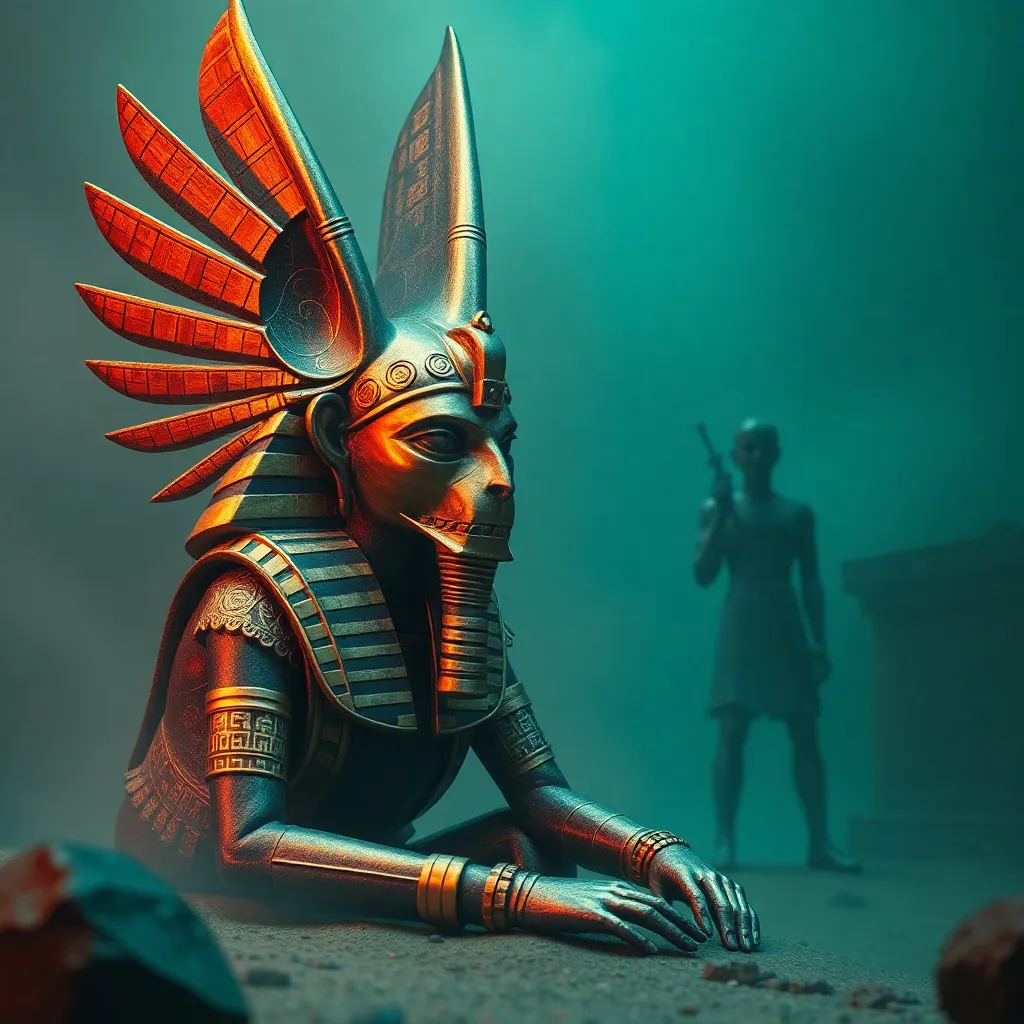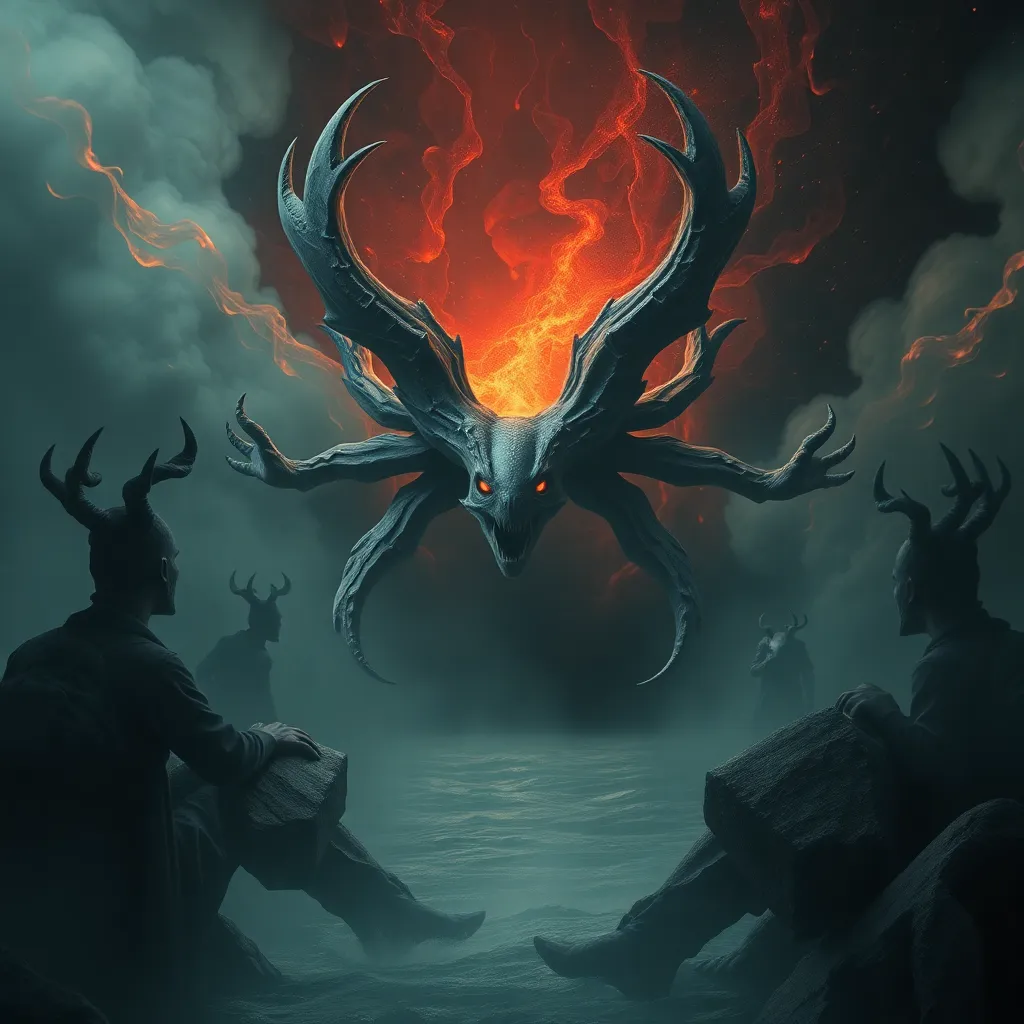Anubis: The God of the Dead and the Importance of Respect for the Deceased
I. Introduction
Anubis, the ancient Egyptian god often depicted with a jackal head, holds a significant place in the mythology of ancient Egypt. He is primarily recognized as the god of the dead and the guardian of the afterlife. His role was crucial in ensuring the safe passage of souls into the afterlife, embodying the Egyptians’ deep respect for their deceased.
The importance of respecting the deceased was woven into the fabric of Egyptian culture, where death was not seen as an end but a transition to another realm. This article explores Anubis’s role, the cultural significance of death in ancient Egypt, and the lessons that can be drawn for modern society.
II. Who is Anubis?
A. Historical background and origins of Anubis
Anubis’s origins can be traced back to the earliest days of ancient Egyptian religion, with references found as early as the First Dynasty (c. 3100 BCE). He was initially depicted as a black jackal or a man with a jackal head, representing his association with cemeteries and the dead.
B. Depictions of Anubis in art and sculpture
In ancient Egyptian art, Anubis is often shown overseeing the mummification process or standing beside the scales used in the weighing of the heart ceremony. His black color symbolizes fertility and rebirth, while his jackal form connects him to the desert, where many cemeteries were located.
C. Anubis’s attributes and symbolism
- Protector of tombs: Anubis was believed to guard the tombs of the deceased, ensuring their safety from robbers and desecration.
- Guide of souls: He assisted souls in navigating the afterlife, providing guidance through the treacherous journey.
- Symbol of resurrection: His association with mummification and the afterlife made him a symbol of resurrection and eternal life.
III. Anubis’s Role in the Afterlife
A. The process of mummification and its connection to Anubis
Mummification was a critical practice in ancient Egypt, aimed at preserving the body for the afterlife. Anubis played a central role in this process; he was said to oversee the embalming of the deceased and ensure that the body was prepared correctly for the journey ahead.
B. Anubis as the guide for souls in the afterlife
As the divine guide, Anubis was believed to escort the souls of the deceased to the afterlife. He welcomed them and prepared them for the judgment they would face before the god Osiris, the ruler of the afterlife.
C. The weighing of the heart ceremony and its significance
One of the most important aspects of Anubis’s role was the weighing of the heart ceremony. In this ritual, the heart of the deceased was weighed against the feather of Ma’at, the goddess of truth and justice. If the heart was lighter than the feather, the soul was deemed worthy and could enter the afterlife; if not, it would be devoured by Ammit, a fearsome creature.
IV. The Importance of Respecting the Deceased in Ancient Egypt
A. Cultural beliefs surrounding death and the afterlife
In ancient Egyptian culture, death was viewed as a passage to another existence rather than an end. The beliefs surrounding the afterlife were deeply embedded in their society, with the hope of achieving eternal life influencing many aspects of daily life.
B. Rituals and practices to honor the deceased
To honor the dead, Egyptians engaged in various rituals, including:
- Funeral rites that included elaborate ceremonies and offerings.
- Building elaborate tombs and pyramids to house the deceased.
- Reciting prayers and spells to protect the soul on its journey.
C. The consequences of disrespecting the dead
Disrespecting the deceased was believed to bring misfortune, both to the individual and the community. Failure to properly honor the dead could result in spiritual unrest, leading to curses or the haunting of the living by unsettled spirits.
V. Anubis in Modern Culture
A. Representation of Anubis in contemporary media and literature
Anubis continues to capture the imagination of people today, appearing in various forms of media, including movies, video games, and literature. His character often embodies themes of death, judgment, and the afterlife.
B. The resurgence of interest in ancient Egyptian practices
In recent years, there has been a growing fascination with ancient Egyptian culture, leading to a resurgence in the exploration of their practices surrounding death and the afterlife. This interest has sparked discussions on how these customs can inform contemporary views on mortality.
C. The relevance of Anubis in discussions about death and remembrance today
Anubis serves as a reminder of the importance of honoring those who have passed. In a modern context, discussions about death often revolve around remembrance and how to carry forward the legacies of loved ones.
VI. Lessons from Anubis and Ancient Egyptian Practices
A. The importance of honoring and remembering loved ones
One of the key lessons from Anubis’s story is the significance of remembering and honoring those we have lost. Cultivating a personal memory culture can help individuals process grief and find comfort in their memories.
B. Cultural variations in attitudes toward death and mourning
Different cultures have various practices and beliefs regarding death. Understanding these can provide valuable insights into how societies cope with loss and celebrate life.
C. How ancient practices can inform modern perspectives on death
Ancient Egyptian practices, such as rituals surrounding death and the afterlife, can inspire modern individuals to reflect on their beliefs about mortality and the ways they choose to remember and honor their deceased loved ones.
VII. Conclusion
Anubis symbolizes the deep respect that ancient Egyptians had for their dead and highlights the importance of honoring those who have passed. By understanding Anubis’s significance, we can reflect on our own beliefs about life and death, encouraging a more profound respect for the memories of our loved ones.
As we explore these ancient practices and beliefs, we are invited to examine our perspectives on death and remembrance. This exploration can enhance our understanding of the human experience and the legacies we leave behind.
VIII. Further Reading and Resources
A. Suggested books and articles on Anubis and Egyptian mythology
- “The Complete Gods and Goddesses of Ancient Egypt” by Richard H. Wilkinson
- “Egyptian Myth: A Very Short Introduction” by Geraldine Pinch
B. Documentaries and films about ancient Egyptian beliefs
- “The Secrets of Egypt’s Lost Cities” – BBC Documentary
- “Egypt: The Power of a Woman” – National Geographic
C. Online resources for exploring death rituals in different cultures



